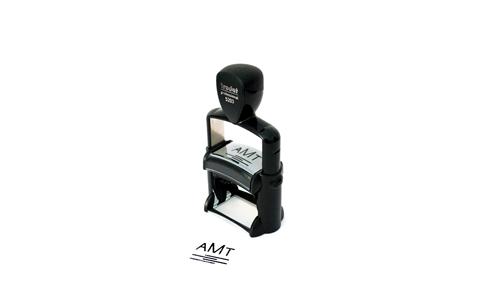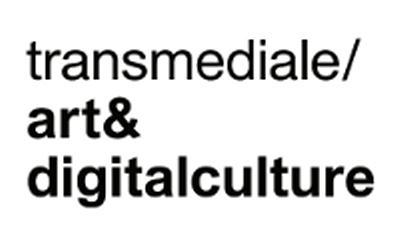Future Past Tense Event

- Time:
- 13:00 - 18:00
- Date:
- 26 October 2016
- Venue:
- Winchester School of Art, Winchester East Building PhD Studio
For more information regarding this event, please email Dr Jussi Parikka at J.Parikka@soton.ac.uk .
Event details
Future Past Tense is the launch event for the new research group at Winchester School of Art. Archaeologies of Media and Technology (AMT) is an office for theoretical and practice-based work in media, design and art, in relation to both contemporary culture and cultural heritage.
The event includes talks by some of the most interesting theorists and practitioners currently working in the field. The topics address media archaeology, art and curatorial work, and open up the question of how media theory situates itself in an art and design school context. The talks explore historical perspectives to media art culture, but also problematize what we even mean by history in a situation where temporal coordinates are as interestingly mixed and layered as are our geopolitical situations. We are interested in futures past, and past futures – in imaginaries of media and the technological conditions of art in contemporary culture. The event is organised in collaboration with and is hosted by our partner organisation, transmediale art and digital culture festival.
Amt – (German) an administrative unit, office
Also: Airy Mean Time, a time standard used for timekeeping on Mars
AMT online: https://www.southampton.ac.uk/amt
And on Twitter: @amt_office
This is a Free event, but please register via Eventbrite.

Organised in collaboration with the transmediale festival.
Schedule
13.00 Jussi Parikka and Ryan Bishop (WSA), “AMT – An Office for Media Archaeology”
13.20 Kristoffer Gansing (artistic director, transmediale, Berlin), "In Office: Humans, Machines and by Incident, Art”
13.40 Joasia Krysa (Liverpool Biennial and Liverpool John Moores University), “Working at the intersection of media archaeology and contemporary art “
14.10 Louise K. Wilson (artist, University of Leeds), “Excavating with Sound/ Listening to the Background”
15.00 break
15.30 Alessandro Ludovico (WSA), “Looking for the spaceless book,: an e-book archaeology”
15.50 Ned Rossiter (Western Sydney University), “Infrastructural Imperialism: From Logistical Labour to Logistical State”
16.10 Sean Cubitt (Goldsmiths, London), “GesAMT and Gestalt”
17.00 break
17.15 Jamie Allen, with Moritz Greiner Petter (Critical Media Lab, Basel)
How to Build a Lie (Lecture Performance)
18.00 Launching AMT (Rotunda, East Building, WSA)
Bios
Jamie Allen is a Canada-born researcher, artist, designer and teacher, interested in what technologies teach us about who we are as individuals, cultures and societies. He has been an electronics engineer, a polymer chemist and a designer with the American Museum of Natural History in New York. He lectures, publishes and exhibits worldwide. He lives in Europe, works on art and technology projects, writes a bit, and tries to engage himself with and create prefigurative institutions which are generous and collaborative, acknowledging that friendship, passion and love are central to aesthetic, research and knowledge practices. He is Senior Researcher at the Critical Media Lab in Basel, Switzerland.
Ryan Bishop is Professor of Global Arts and Politics at the Winchester School of Art, the University of Southampton. With Jussi Parikka, he is the Director of AMT-research group. In addition to co-editing with John Armitage and Doug Kellner the journal Cultural Politics (Duke University Press), he also serves on the editorial board of Theory, Culture & Society. Bishop also edits the book series ‘Theory Now’ for Polity Press and co-edits the book series ‘Technicities’ (with John Armitage and Joanne Roberts, Edinburgh University Press) and ‘A Cultural Politics’ book series (with John Armitage and Doug Kellner). Some recent books include Cold War Legacies: Systems, Theory, Aesthetics (co-edited with John Beck, forthcoming EUP), Comedy and Cultural Critique in American Film (EUP, 2013); Virilio and Visual Culture (co-edited with John Armitage) EUP 2013; Modernist Avant-Garde Aesthetics and Contemporary Military Technology (co-authored with John Phillips) Edinburgh University Press, 2010; and Baudrillard Now, Polity Press, 2009. His research areas include critical theory, critical cultural studies, literary studies, visual culture, urbanism, aesthetics, critical military studies, institutional studies, architecture, and sensory perception and knowledge formation.
Kristoffer Gansing has been the artistic director of the transmediale festival since 2012. As a curator and researcher he is interested in the intersections of media, art, and activism. He is co-founder of the festival The Art of the Overhead (2005) and from 2007-2010 was an editorial board member of the artist-run channel tv-tv in Copenhagen. From 2001-11 he taught the theory and practice of new media at the K3 School of Arts and Communication at Malmö University. In 2013 he completed his PhD thesis, entitled Transversal Media Practices, a study dealing with media archaeology, art, and technological development.
Joasia Krysa holds a collaborative post with Liverpool Biennial (Head of Research) and Liverpool John Moores University (Director of Exhibitions Research Centre), and Adjunct Associate Professor in Curating at Aarhus University in Denmark. Formerly, she served as Artistic Director of Kunsthal Aarhus, Denmark (2012-2015), and part of Documenta 13 curatorial team (2009-2012). She co-edited book (with Jussi Parikka) Writing and Unwriting Media Art History (MIT Press, 2015) and contributed chapters to, amongst others, The Two Sided Lake. Scenarios, Storyboards and Sets from Liverpool Biennial 2016. (Liverpool University Press, 2016), The Routledge Companion to Art and Politics (2015), and Networks (MIT Press/Whitechapel 2014). She is co-curator of Liverpool Biennial 2016.
Moritz Greiner-Petter is a designer and researcher with background in visual communication and digital media design. He is junior researcher at the Critical Media Lab Basel and PhD candidate at the Cultural Studies department of Humboldt University Berlin. As a researcher and practitioner he is interested in exploring the media aesthetics and epistemes of information technologies through design practice. His work takes the form of speculative artefacts and interactive prototypes, experimental publishing formats as well as writing.
Alessandro Ludovico is an artist and chief editor of Neural magazine since 1993. He received his Ph.D. degree in English and Media from Anglia Ruskin University in Cambridge (UK). He is Associate Professor at the Winchester School of Art, University of Southampton and Lecturer at Parsons Paris - The New School. He has published and edited several books, and has lectured worldwide. He also served as an advisor for the Documenta 12's Magazine Project. He is one of the authors of the award-winning Hacking Monopolism trilogy of artworks (Google Will Eat Itself, Amazon Noir, Face to Facebook).
Dr Jussi Parikka is Professor at the Winchester School of Art (University of Southampton) and with Ryan Bishop, the Director of AMT research group. His books have addressed a wide range of topics relevant to a critical understanding of network culture, aesthetics and media archaeology of the digital. The books include the media ecology-trilogy Digital Contagions (2007), Insect Media (2010) and most recently, A Geology of Media (2015), which addresses the environmental contexts of technical media culture. In addition, Parikka has published such books as What is Media Archaeology (2012) and edited various books, most recently Writing and Unwriting (Media) Art History (2015, with Joasia Krysa) on the Finnish media art pioneer Erkki Kurenniemi. He is currently co-curating with Ayhan Aytes a section for the Istanbul Design Biennial on Middle-Eastern legacy of automata as a media archaeological version of speculative design. Parikka’s website/blog is at http://jussiparikka.net.
Ned Rossiter is Professor of Communication and holds a joint position in the Institute for Culture and Society and the School of Humanities and Communication Arts (Western Sydney University, Australia). He is currently a Senior Research Fellow at Leuphana University’s Digital Cultures Resesearch Lab, Lüneburg. Ned is the author of Software, Infrastructure, Labor: A Media Theory of Logistical Nightmares (New York: Routledge, 2016).
Louise K Wilson is a visual artist, writer and lecturer in Art and Design at the University of Leeds. Her current research uses sound and aurality to ask philosophical and material questions about the spatio-temporal physicality of certain sites and our perceptions of them. She has traveled to numerous (military and scientific) sites including nuclear submarines, listening stations, university halls, marine research environments, rocket launch sites and disused RAF bases in pursuit of the acoustics of resonant spaces. Her published writing includes book chapters and texts for The Nuclear Culture Source Book (forthcoming 2016); In the Ruins of the Cold War Bunker: Affect, Materiality and Meaning-Making (forthcoming 2017); The Routledge Companion to Military Research Methods (2016); Beyond Text: Critical Practices and Sensory Anthropology (2016) and Contemporary Archaeologies: Excavating Now (2009).